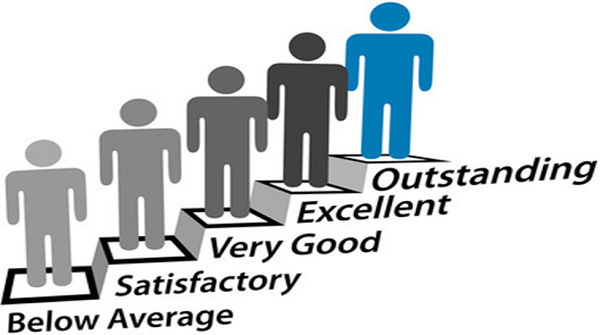In this chapter, we shall discuss the relationship between Talent Management and Performance Management. Both are two integral parts of human resources management, and are focused on the same organizational goal – securing human capital contribution and performance.
Performance management is concerned with the present – here and now; whereas talent management focuses on securing the future – tomorrow. The process and activities involved are completely different between these two programs however the targeted outcome for the organization is the same.

Talent management aims at retaining the efficient and high-performing employees, while performance management aims at setting the performance objective, activities, and target according to the individual accountability plan and measure performance periodically – yearly or quarterly.
Performance management includes activities such as planning work, goal setting, monitoring or continuous progress review, frequent communication, feedback and training for improved performance, implementation of employee development programs and rewarding achievements.
Performance Management includes the following activities −
- Planning and Setting Goals − Performance management includes proper planning and setting performance expectation and goals for individuals and teams to redirect their efforts and skill towards realizing organizational goals. There should be measurable, understandable, verifiable, and achievable performance elements and standards.
- Monitoring or Evaluating Performance − This involves periodical assessment or measuring of employees’ performance, providing feedback to employees and work groups on their progress towards realizing their set goals. Continuous progress review is helpful in identifying unacceptable performance at any time.
- Developing and Enhancing Capacity − Performance management provides training, gives assignments to acquaint the employees with new skills, and improves the work processes or methods to enhance the capacity to perform. Performance management processes provide a good opportunity to identify development needs.
- Rating or Evaluating Performance − Evaluate or assess employees or group performance against set standards or elements in a performance plan. Based on the evaluation, assign a summary evaluation or rating record.
- Rewarding Performance − The last stage of performance management is to have a culture of rewarding employees, both individually and as members of group for their performance towards the realization of organizational goals and objectives.
Objective of Performance Management in Managing Talent
The objective of performance management is to build a high performance culture for both individuals and teams in an organization so that they jointly take the responsibility of improving the business processes, and at the same time increase overall productivity.

Following are some important objectives of Performance Management with reference to talent management.
- Drive the employees towards achievement of superior standards of work performance.
- Support the employees in identifying the knowledge and skills required to perform the job efficiently.
- Motivate employees by encouraging employee empowerment and implementation of an effective reward process.
- Promote a two-way system of communication between management and the employees for clarifying expectations, roles and accountabilities, functional and organizational goals. Provide regular and transparent feedback to improve employee performance.
- Identify the barriers or problems to effective performance and resolve those barriers through constant monitoring, training, and development interventions.
- Promote personal growth in the career of the employees by helping or supporting them in acquiring the desired knowledge and skills.
- Increase the self-esteem of the employees and enhance their self-insight and development.
Benefits of Performance Management
An effective performance management system can play a very crucial role in managing the performance in an organization by −
- Ensuring proper understanding of objectives and facilitating effective communication throughout the organization.
- Developing a healthy relationship between an employee and the line manager based on trust and empowerment.
- Ensuring each employee understands what is expected and equally ascertaining whether the employees possess the required skills and support to fulfill such expectations.
- Ensuring employees understand the importance of their contributions to the organizational goals and objectives.
- Better and timely differentiation between good and poor performers.
- Enhancing the competence of the employees and enabling the managers to gain insight about their subordinates.
- Facilitating organizational changes and paving ways for appropriate administrative actions.

Comments
Post a Comment